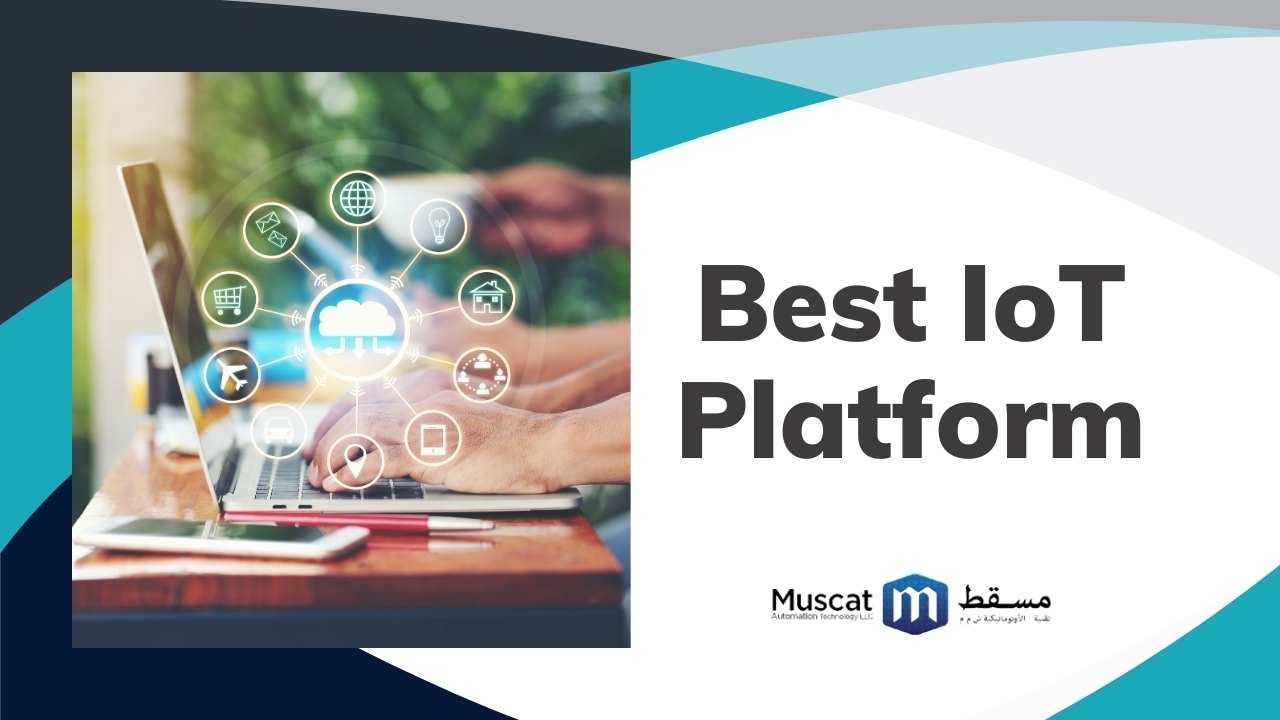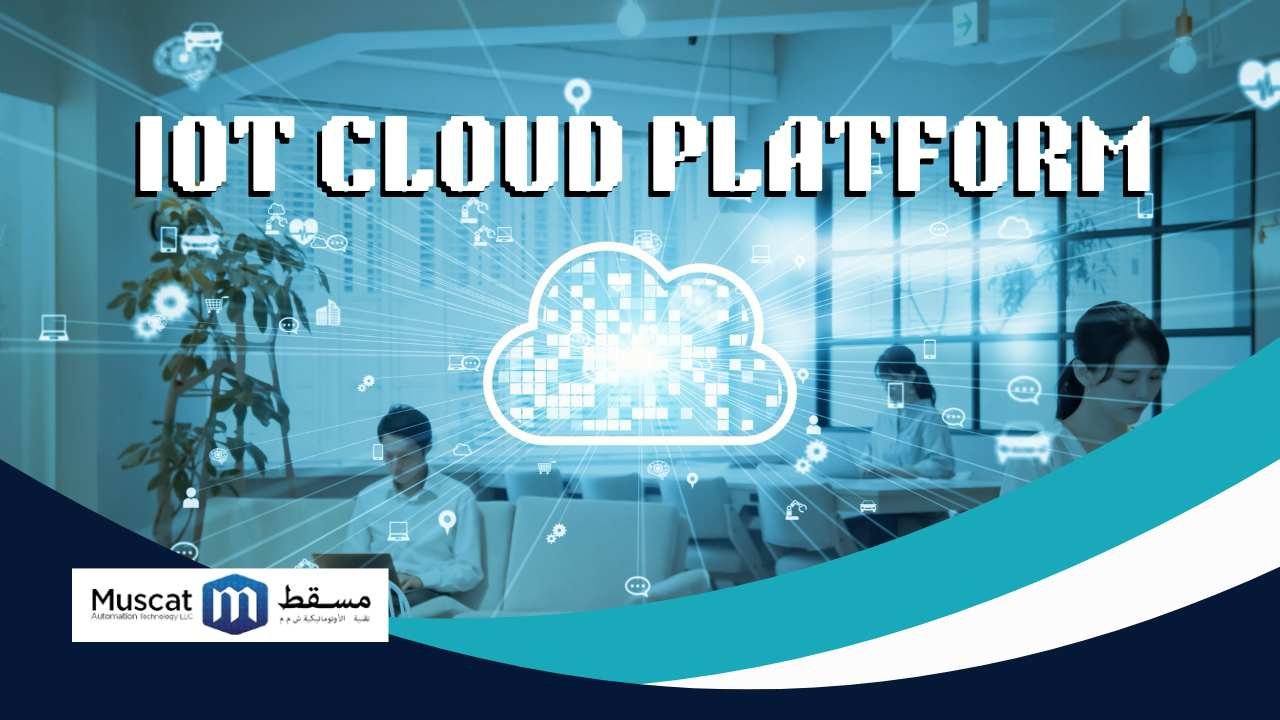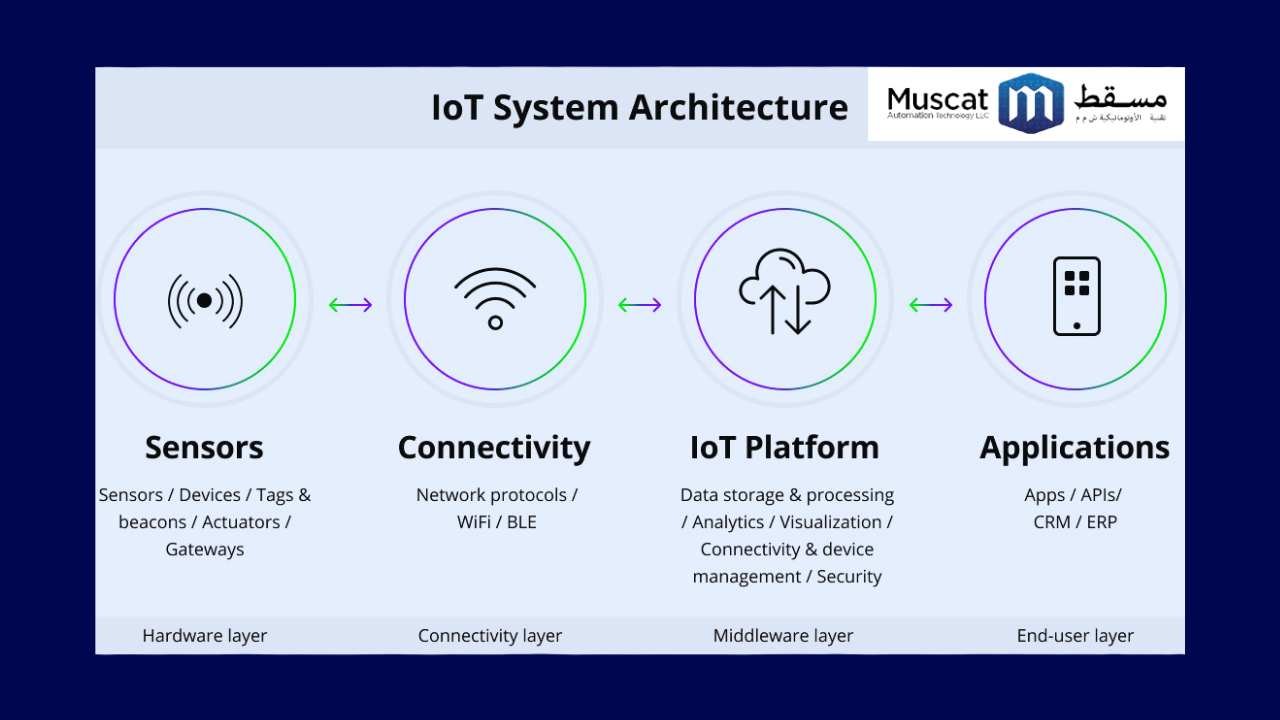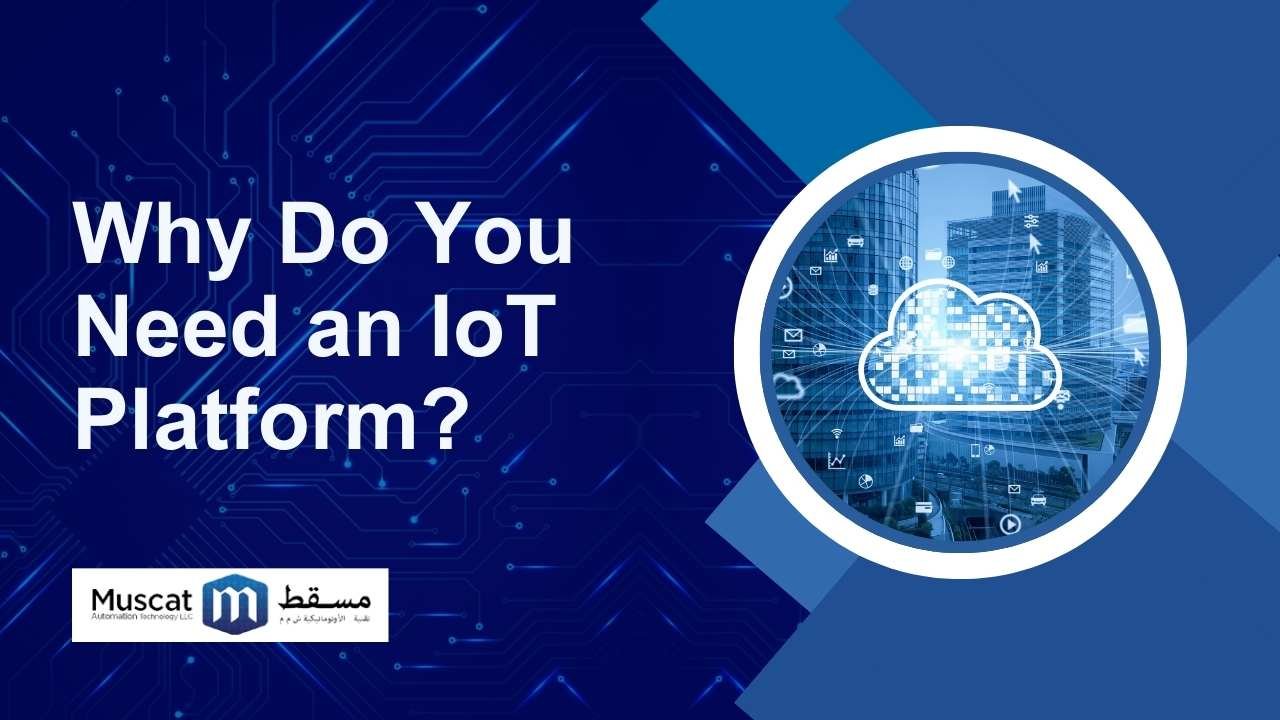8 Best IoT Platform In 2025

The Internet of Things (IoT) refers to a community of interconnected gadgets that talk and exchange statistics via the Internet. These devices range from clever thermostats and wearable fitness trackers to complicated industrial machines. IoT has revolutionized how organizations and individuals interact with the era, allowing more intelligent operations, progressing performance, and actual-time selection-making. Its programs span numerous sectors, including healthcare, agriculture, logistics, and clever cities, riding innovation and productivity.
IoT structures serve as the backbone of IoT ecosystems, supplying equipment to connect, manage, and examine statistics from these devices. They streamline tool verbal exchange, ensure facts safety, and permit actionable insights through analytics. With an IoT platform, organizations can centralize device management and combine statistics seamlessly into programs, making it easier to harness the full capability of IoT.
Selecting the right IoT platform is vital for ensuring scalability and operational performance. Factors such as tool compatibility, data analytics skills, security features, and value play a pivotal function in determining the best platform for precise business desires. A powerful IoT platform now not only complements connectivity and analytics but also supports destiny growth and adaptability in the rapidly evolving IoT panorama.
What is IoT Cloud Platform?

An IoT cloud platform is a cloud-primarily based solution designed to allow the relationship, management, and evaluation of Internet of Things (IoT) devices. These platforms serve as the critical hub that connects various devices, sensors, and programs, permitting groups to collect and procedure reasonable-sized amounts of facts in actual time. By leveraging cloud infrastructure, IoT cloud structures provide scalability, price performance, and flexibility that traditional on-premise answers can not be healthy. Key capabilities of an IoT cloud platform include:
- Seamless device integration throughout brands and protocols.
- A secure data garage for widespread sensor data.
- Superior analytics for actionable insights.
- Robust security features like encryption and admission to controls to guard towards cyber threats.
IoT cloud platforms are critical across industries. In healthcare, they allow remote patient monitoring to enhance care and performance. Manufacturing advantages from real-time equipment monitoring, predictive protection, and streamlined strategies. Smart city IoT platforms to optimise infrastructure like traffic structures, waste management, and energy usage, improving sustainability. Those structures empower smarter, more linked answers by centralising control and analytics.
IoT Platform Architecture

IoT platform architecture refers to the layout and structure of the underlying additives that help the relationship, management, and analysis of Internet of Things (IoT) devices. The architecture guarantees that gadgets can talk with each other, transmit statistics, and be monitored and managed remotely. It is a multi-layered structure that offers the spine for an unbroken, scalable, and secure IoT environment.
Key ideas inside the design of the IoT structure encompass scalability, safety, and real-time analytics. Scalability is vital due to the fact IoT networks frequently contain lots, if no longer thousands and thousands, of devices. A robust IoT structure can, without difficulty, make it bigger to house developing numbers of devices, users, and records. Security is another crucial aspect, as IoT structures handle touchy facts. Encryption, stable statistics transmission, and robust authentication mechanisms should be included in the platform to ensure facts are integrity and prevent unauthorized admission. Real-time analytics permit the IoT platform to manner and examine information, supplying actionable insights and allowing for brief decision-making and reaction.
Overview of the 8 Best IoT Cloud Platforms

1. Amazon Web Services (AWS IoT Core)
AWS IoT Core gives complete tool control, permitting customers to connect, control, and secure gadgets without problems. It includes effective analytics equipment, real-time information processing, and integration of AWS machine getting-to-know offerings. AWS IoT Core supports bendy and scalable architecture to help corporations securely join billions of gadgets and manage the generated statistics. Additionally, it gives side computing abilities to reduce latency and improve real-time decision-making. AWS IoT Core is popular in industries like smart houses for automating and tracking devices and commercial IoT for dealing with machines and operations, enabling predictive upkeep, and enhancing manufacturing performance.
2. Microsoft Azure IoT Hub
Azure IoT Hub is a cloud-based solution allowing for the relationship and management of billions of IoT gadgets. It provides seamless integration with Azure cloud offerings and helps AI capabilities for studying actual-time statistics. It includes features for device authentication, secure facts transmission, and the management of each device and user records. Azure also helps custom dashboards and analytics to extract actionable insights from related devices. Azure IoT Hub is widely used in production to boost operational performance and allow predictive preservation. It’s also vital inside the healthcare area, as it enables tool monitoring and patient records analytics.
3. Oracle IoT Cloud
Oracle IoT Cloud Service is a platform that connects IoT gadgets to the cloud, permitting real-time tracking, statistics series, and analytics. Oracle’s IoT solution is tightly included with its corporation software surroundings and Oracle ERP, CRM, and SCM, offering end-to-give-up visibility and automation. Key capabilities encompass tool virtualization, predictive analytics, and prebuilt packages for logistics, construction, and retail industries. Oracle IoT Cloud excels in company-grade programs where integration with business methods is critical.
4. Kaa Enterprise IoT Platform
Kaa Enterprise is an open-source IoT platform that provides flexibility and scalability when handling connected gadgets. It lets corporations build custom IoT programs with features like device control, actual-time monitoring, and analytics. Kaa supports multiple communique protocols and can be deployed in cloud and on-premises environments. Its modular architecture makes it perfect for asset monitoring, smart appliances, and industrial monitoring.
5. ThingWorx IIoT Platform
ThingWorx uses PTC as an industrial IoT (IIoT) platform for clever, connected merchandise and operations. It gives a comprehensive suite of tools, records analytics, utility improvement, and augmented reality (AR) integration. ThingWorx suits industrial cloud use cases with predictive preservation, manufacturing unit automation, and supply chain optimization. Its drag-and-drop interface and prebuilt widgets make it easy to create IoT packages fast, even as its integration abilities beautify operational performance.
6. Siemens MindSphere
Siemens MindSphere is an open IoT operating gadget focused on commercial applications. It connects bodily assets to the virtual world, permitting groups to harness real-time data for actionable insights. MindSphere helps with features like predictive renovation, asset overall performance management, and electricity optimization. It integrates with Siemens’ industrial automation products and other cloud services, making it a robust platform for manufacturing, strength, and transportation industries.
7.Particle
Particle is an IoT platform that combines hardware, software program packages, and connectivity into an unmarried answer. It offers a collection of equipment for IoT improvement, such as cellular and Wi-Fi hardware modules, cloud-based tool management, and firmware improvement. Particle is suitable for small—to medium-scale IoT projects, especially in consumer electronics, smart agriculture, and environmental tracking. Its simplicity and ease of deployment make it an appealing choice for startups and developers.
8. Cisco IoT Cloud Connect
Cisco IoT Cloud Connect is a platform for carrier companies to supply IoT answers with steady connectivity and scalability. It helps mobile network operators manage IoT gadgets over cellular networks, offering offerings like SIM provisioning, connectivity control, and alertness enablement. Cisco IoT Cloud Connect is customized for industries like telecommunications, automobile, and logistics, where mobile connectivity is an important issue.
Why Do You Need an IoT Platform?

IoT platforms centralize the control of devices, making it easier for groups to connect, display, and manage more than one gadget seamlessly. These systems provide prebuilt APIs, verbal exchange protocols, and dashboards that lessen the complexity of integrating various device types and information formats. This standardization simplifies onboarding, firmware updates, and device troubleshooting, ensuring a streamlined control procedure. IoT structures are constructed for scalability, allowing companies to expand operations as deployments grow efficaciously. They accommodate additional devices and large data volumes without sacrificing performance, ensuring adaptability to boom, seasonal needs, or accelerated person interactions.
By consolidating records storage and analytics inside the cloud, IoT platforms lessen the need for high-priced on-premises infrastructure. Businesses benefit from pay-as-you-move pricing models, which allow them to scale expenses in share to utilization. Advanced analytics gear in these structures permits actionable insights, riding operational efficiency and lowering waste. IoT platforms ensure security via facts encryption, stable protocols, and consumer authentication, shielding sensitive data from cyber threats. Real-time monitoring and automatic updates decorate protection and compliance, efficiently mitigating risks like records breaches.
How to Choose a Cloud IoT Platform?
Scalability
As IoT deployments grow, the platform should cope with increasing numbers of gadgets and record streams. Choose a platform that supports horizontal and vertical scaling, allowing for clean overall performance as your business expands. Scalable systems ensure your infrastructure can adapt to unexpected spikes in demand or lengthy-term booms without needing expensive overhauls.
Interoperability
The ideal platform must assist various IoT devices, verbal exchange protocols (e.g., MQTT, HTTP, CoAP), and third-party integrations. Interoperability ensures that your platform can connect and manipulate diverse devices seamlessly, allowing you to keep away from seller lock-in and destiny-proofing your IoT environment.
Analytics and Insights
Robust analytics skills are essential for extracting actionable insights from IoT statistics. Look for platforms that provide real-time analytics, machine learning integrations, and customizable dashboards. These capabilities enable agencies to display device performance, expect preservation wishes, and optimize operations primarily based on records-driven insights.
Security
Security is a cornerstone of any IoT platform. Evaluate the platform’s encryption techniques, authentication protocols, and compliance with industry requirements, including GDPR or HIPAA. Features like a steady boot, tool identification control, and anomaly detection offer layers of safety against cyber threats.
Ease of Integration
Seamless integration with existing commercial enterprise structures, including ERP, CRM, or other analytics tools, is essential. A platform that offers prebuilt APIs, SDKs, and precise documentation can reduce deployment time and ensure that your IoT information is easily accessible throughout your corporation.
Cost-Effectiveness
Consider the platform’s pricing version—whether it offers pay-as-you-pass plans, subscription-based pricing, or tiered utilization plans. A price-powerful solution aligns with your price range and scales along with your utilization, helping you avoid overpaying for unused resources or encountering sudden prices as your IoT deployment grows.
Conclusion
IoT structures are essential in enabling seamless tool connectivity and information evaluation by performing as the crucial hub for managing, integrating, and analyzing records from related gadgets. They ensure smooth verbal exchange between devices and steady record storage and offer superior analytics gear that remodels raw statistics into actionable insights. These capabilities drive operational efficiency, improve selection-making, and support innovations across industries with healthcare, production, and smart cities.
Choosing the right cloud IoT platform is essential to align with specific business dreams and scalability wishes. The platform should assist in increasing destiny, managing diverse gadgets and facts streams, and providing robust security measures to shield sensitive information. A nicely matched IoT platform no longer optimizes cutting-edge operations best but also lays a strong foundation for a sustained increase in an increasingly connected world.
FAQS
1. What are the 4 types of IoT platforms?
The four principal sorts of IoT structures are IoT Connectivity Platforms, Device Management Platforms, Application Enablement Platforms, and Analytics Platforms. IoT Connectivity Platforms control verbal exchange protocols for gadgets using Wi-Fi, Bluetooth, and cellular net, ensuring secure and reliable data transmission.
2. What are the 4 levels of IoT?
As we’ve seen, the IoT machine architecture is laid out in four layers: the bodily layer, the network layer, the middleware layer, and the software layer. That then cascades into four stages: seize statistics, examine, manner, and advise corrective measures using excessive-cease packages.
3. What is the difference between CPS and IoT?
CPS is a gadget that integrates bodily components and computer systems, growing a network of interconnected gadgets. IoT is a community of physical gadgets that can be connected to the internet and might speak with every other person without human intervention.
4. Which is the best IoT or embedded system?
IoT specializes in connecting things and sharing facts, making smart homes and cities viable. Embedded Systems are first-rate at doing specific tasks nicely, usually interior larger machines. Understanding this predominant difference between embedded systems and IoT allows humans to select the right project era.